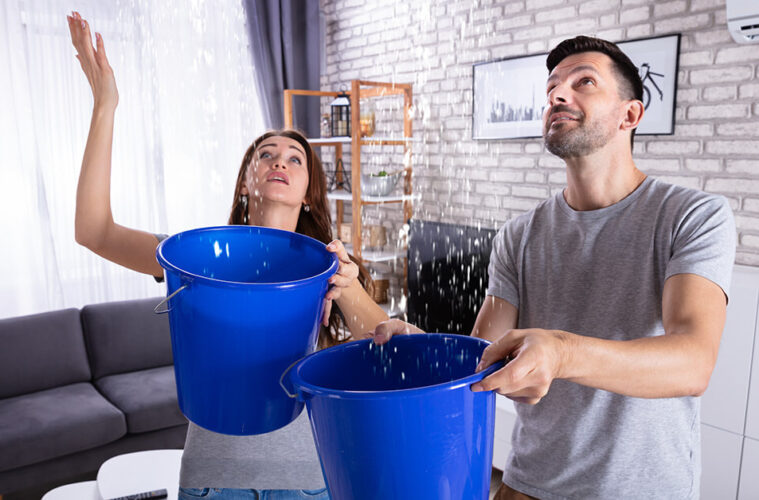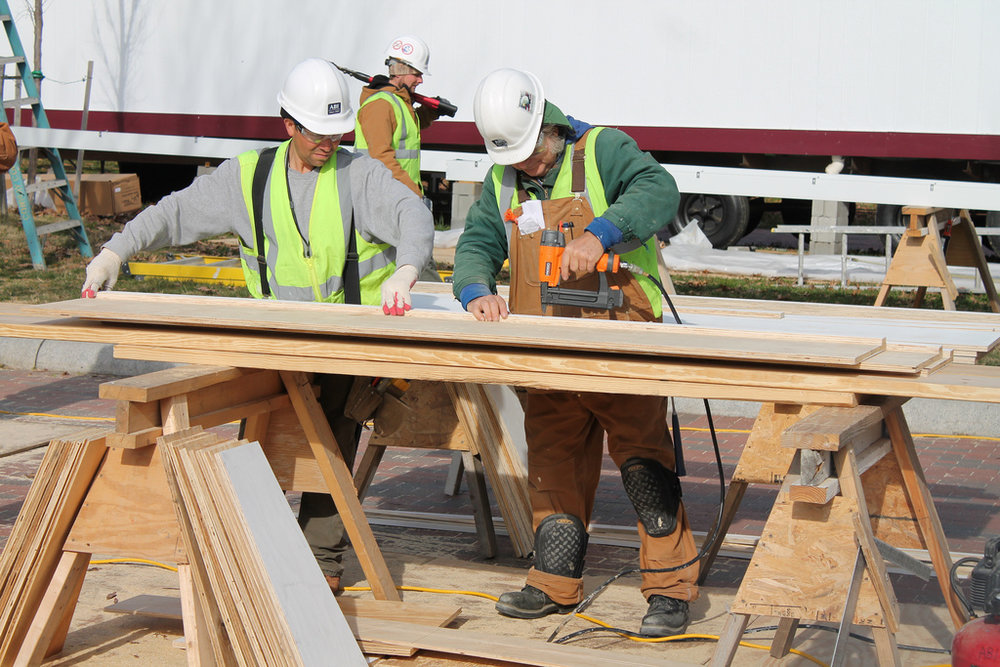We use all the appliances in our home so often that most homeowners don’t even realize they can cause serious damages when they malfunction or leak. Essentially any appliance in your home that uses water significantly increases your risk for water damage.
To help prevent costly water damage from leaking appliances in your home, we’ve put together the following guide. Here, we will review the appliances most likely to cause water damage in your home, how to prevent it from occurring, and when damage caused my leaking appliances is covered by your insurance company.
Hot Water Heater
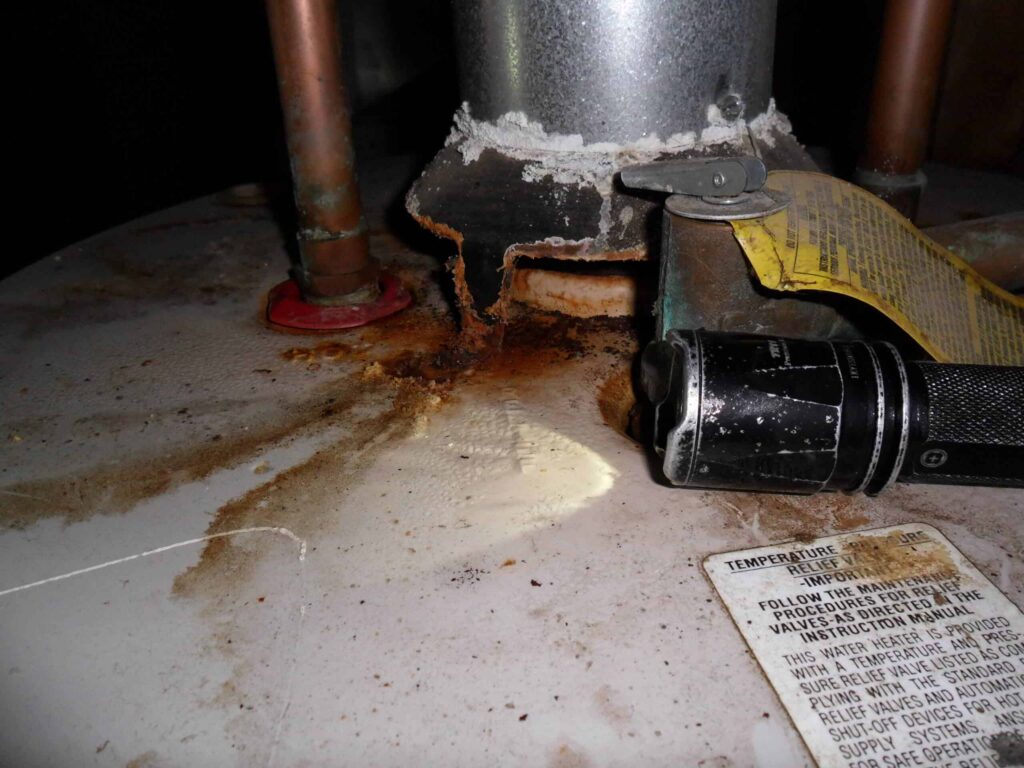
The average hot water heater holds anywhere from 40 to 120 gallons of water, depending on the model. If your water heater malfunctions or leaks, a huge amount of water can flood your home before you even realize it. Depending on where the water heater is in your home, the damages can become more extreme as water seeps through floors and into the rooms below.
The average life expectancy of a hot water heater is 8-15 years, but most fail before even reaching 12 years old. When your water heater gets older, you should keep a closely lookout for any signs of it failing or malfunctioning.
Your hot water heater may failure because of:
- Loose valves
- High pressure in the tank can cause it to burst or crack
- High levels of sediment in the water tank
- A corroded anode rods
Washing Machine
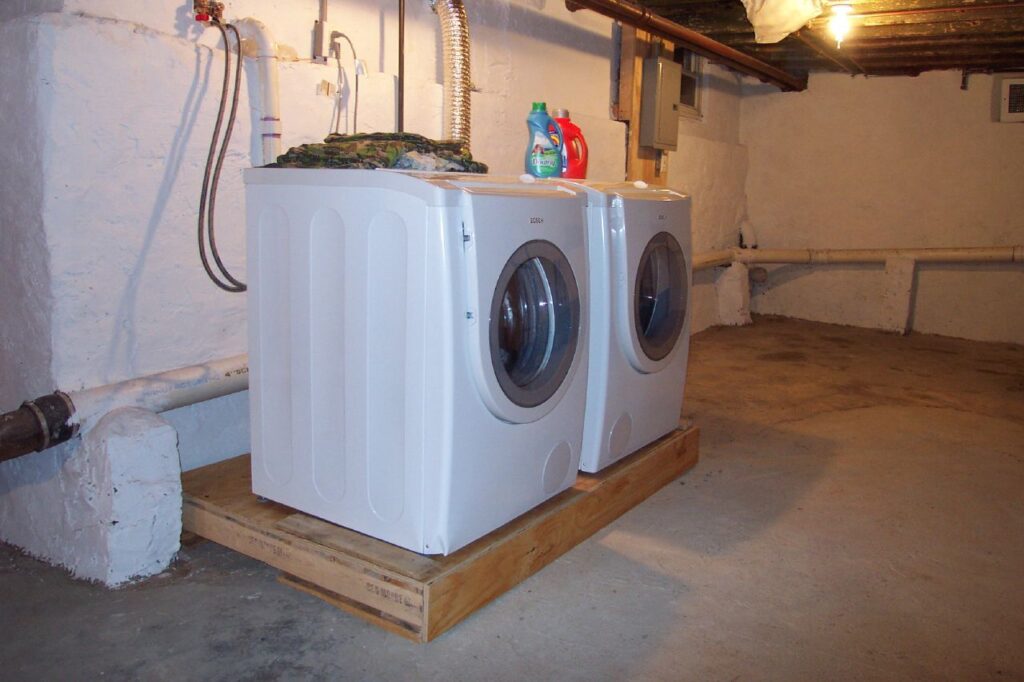
source: hearstapps.com
While most washing machines only use around 19 gallons of water per load, they can still cause serious water damage when they leak or overflow.
Common causes of washing machine water damage include detached or cracked water supply hoses, overfilling the machine, using too much detergent, or a faulty inlet valve. Out of these, you should keep the closest eye on your water supply hose. These fail after an average of 8.7 years and can cause your entire laundry room to flood.
Refrigerator
Most homeowners are surprised to hear that their refrigerator could be a culprit of residential water damage. When your fridge has a water filter or ice maker, the odds of water leaks drastically increase. If the water line is incorrectly installed, clogs, or develops a hole, it can leak for weeks before you even realize.
Another common case of a refrigerator leak is a clogged or broken defrost drain. When defrost water has no where to go, it’ll end up leaking right on to the floor.
Dishwashers
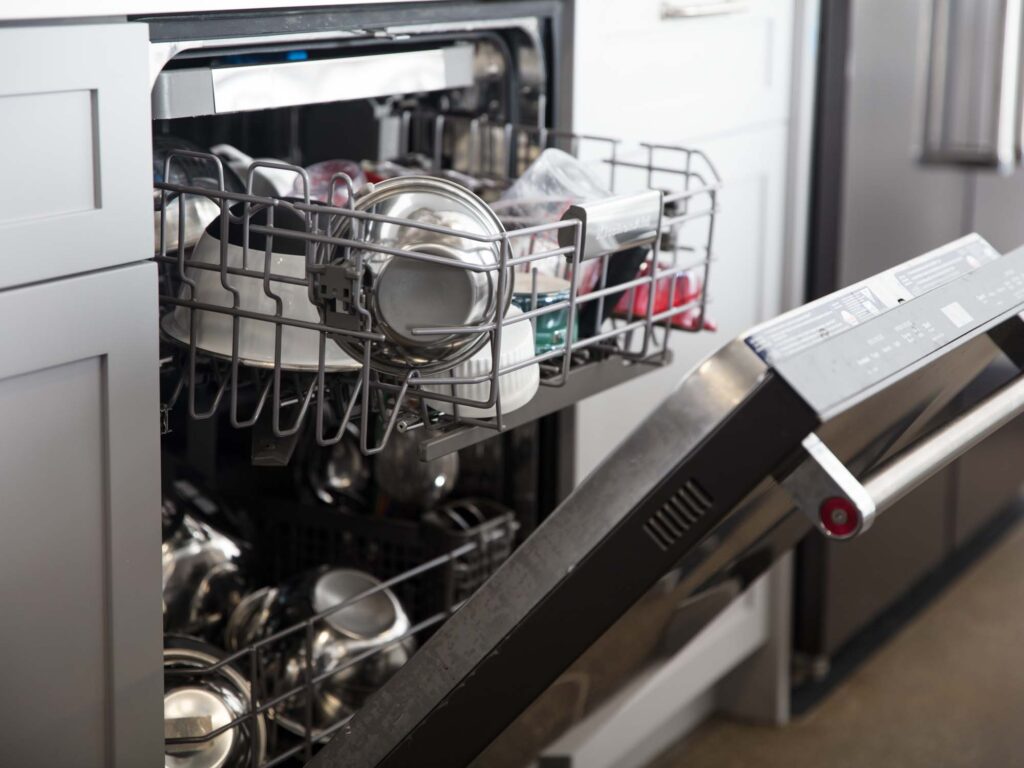
source: seriouseats.com
Newer dishwashers use anywhere from 3 to 6 gallons of water per load. While this is a small amount of water compared to a washing machine or water heater, a leaking dishwasher can still cause extensive water damage to your home. If the dishwasher leaks over a long period of time, it will likely damage the floor, surrounding walls and cabinetry, and even the ceiling below. It.
Causes of dishwasher leaks include:
- Leaking door
- Leaking or cracked tub
- Loose or cracked water hoses or clamps
- Using the incorrect or too much detergent
Air Conditioning Units
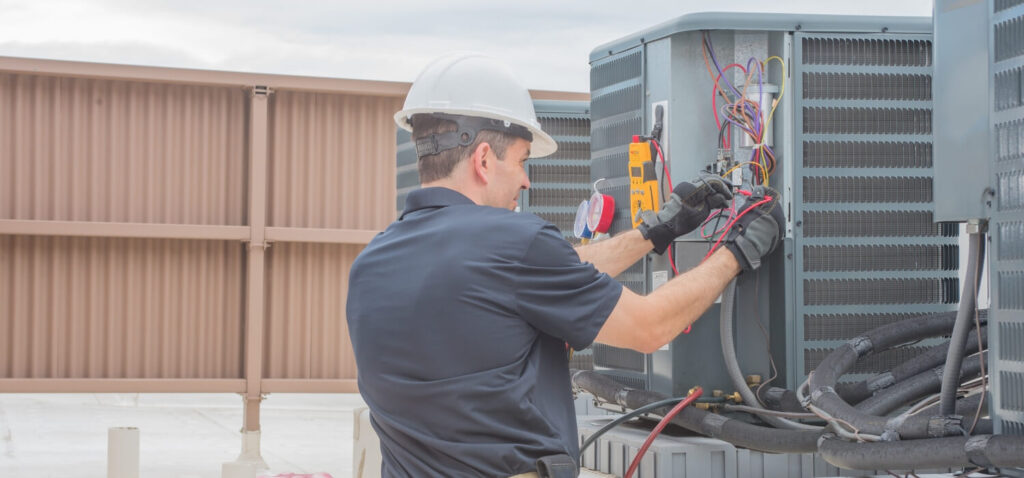
source: happyhiller.com
Out of all the appliances that can cause water damage in your home, your air conditioning unit is probably the one that you’re least likely to notice. Depending on where the unit is located, it can leak for weeks before you notice a problem. Air conditioning units usually have slow but consistent leaks.
Common causes of air conditioner leaks include:
- Clogged or disconnected drain
- Dirty condensate pump
- Clogged air filter
- Dirty evaporator coil
- Cracked drain pan
- Low refrigerant
- Condensation buildup within ductwork
Tips to Prevent Appliances from Leaking
While you can’t always avoid water damage from a leaking appliance, there are steps all homeowners can take to make it much less likely. Simply performing regular visual inspections of your appliances can help you catch issues before they develop into major problems. Still, on top of visual inspections homeowners should do the following to prevent appliances from leaking:
- Inspect Water Supply Lines
- Keep Track of When Supply Line Hoses Should Be Replaced
- Have Your Water Heater Inspected Once Per Year
- Have Your HVAC System Serviced Once Per Year
- Follow All Manufacturer Guidelines
When is Appliance Water Damage Covered by Insurance?
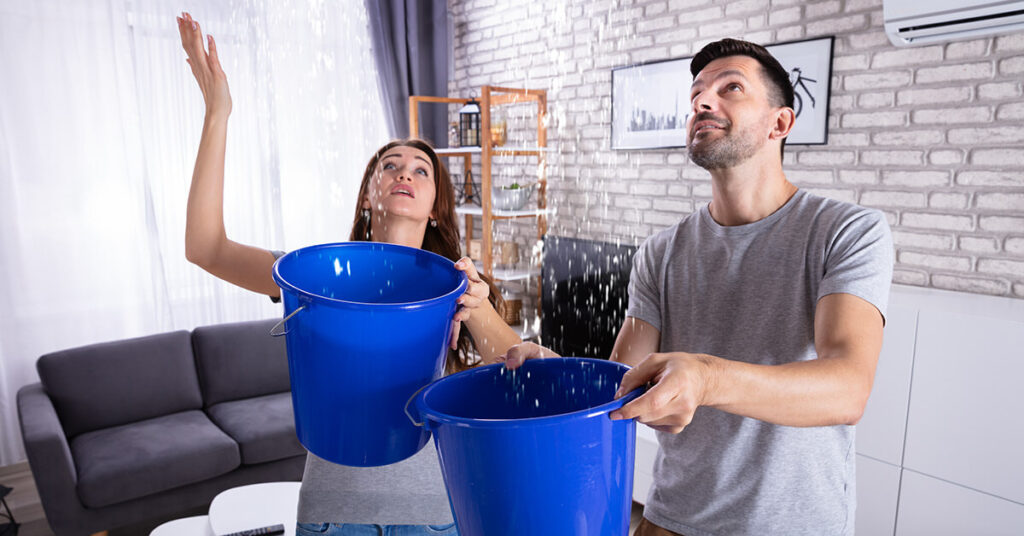
source: roxinsurance.com
When appliances leak, you’ll likely need help from a local water damage service to dry everything out. Since these services can range anywhere from $1,000 to $10,000, you’ll want to have the cleanup covered by insurance. But will it be?
Most times, your homeowners insurance policy will cover water damage caused by an appliance. Damages are covered when they were sudden and unforeseen. This just means that there weren’t signs that the appliance was going to leak, and that you didn’t ignore a leak for an extended amount of time before taking steps to repair it. If you know your washing machine leaks every time you use it but didn’t take action for over a year – it’s likely your claim will be denied.
Your claim may also be denied if the damage if your insurance adjuster deems it caused by regular wear and tear. If it seems that you simply didn’t take proper care of an appliance and that caused it to leak, they may not cover the damages. Insurance claims for appliance water damage can be complicated if it’s not clear if it suddenly happened.
Your claim should be covered when
- Your Hot water heater leaks or bursts
- Washing machine overflows
- HVAC leaks
- Dishwasher leaks
- Ice maker line leaks

